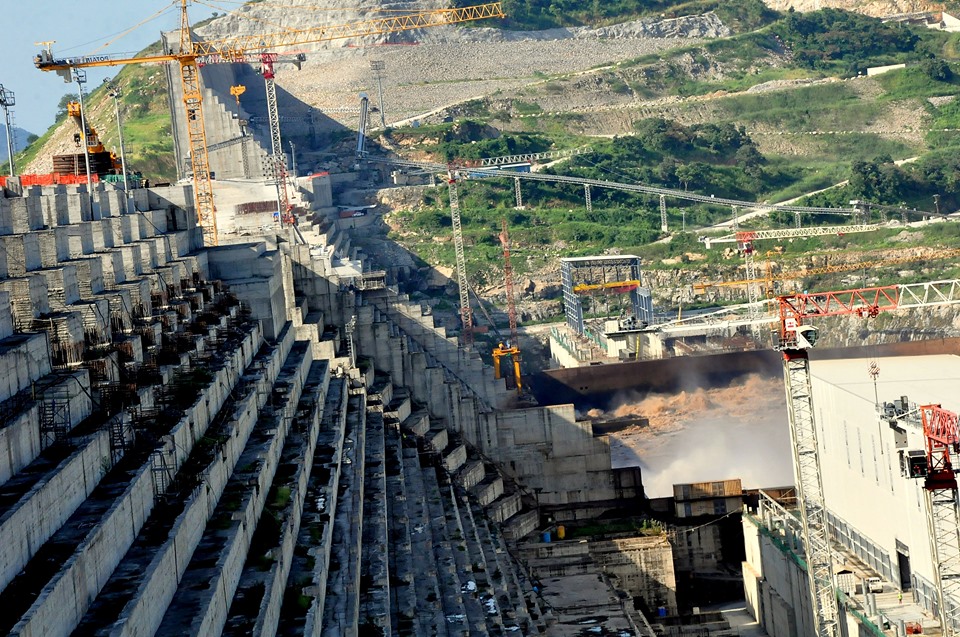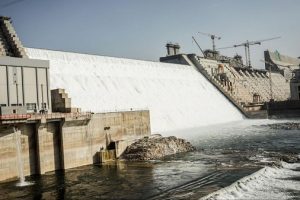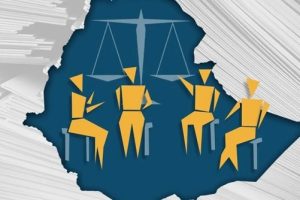
The row over GERD between Ethiopia and Egypt got tense following Egypt’s filing of an appeal to the United Nations Security Council (UNSC). However, Sudan’s decision stating its refusal to stand by Ethiopia’s draft agreement proposal to fill the dam took all by surprise.
Amidst all these developing discourses and pressures, Ethiopian government passed its unwavering decision to fill the dam with no precondition. Ethiopia clearly reaffirmed its position to withdraw from the US-brokered negotiations in Washington. Ethiopia, however, still firmly believes in leaving the option of tripartite diplomatic negotiations open as far as the filling progress is not affected by the discussions.
Unlike Egypt, Ethiopia’s commitment to regional and continental cooperation has long history and forms the basis of the tripartite Declaration of Principles (DoP) which was signed in March 2015.
Egypt has always underestimated the value of an African solidarity and the effectiveness of the continental bloc’s dispute resolution interventions. It resorts to align with the pan-Arab bloc during Nasser’s time back in the 1950s, few years before signing of the 1959 treaty with Sudan that left Ethiopia and other basin states no water to share from Nile.
Nasser turned into the Arabs to get blessing on his project of monopoly over Nile. In a clear manifestation of Egypt’s Non-Pan African ideals, Abdel Fattah El-Sisi as well is playing gang politics through mobilizing a bloc that equates logic with favoritism in making decisions. Ethiopia’s commitment to Pan-African ideals, however, remains firm and intact.
Ethiopia’s foreign policy continued to promote mutual respect, impartiality and a cooperative spirit among basin countries and beyond. It is within this context that Ethiopia took the leadership role to reinforce a cooperative modality through the launch of the Nile Basin Initiative in 1999.
Egypt itself accepted the intention of the principle of equitable and unbiased use of the Nile River. But it disagreed on the content of article 14 (b) of the agreement stubbornly claiming the respect of its post 1959 share of Nile use. Despite Cairo’s and Khartoum’s decision not to be party to the CFA, the Agreement was signed by six countries and Ethiopia, Rwanda, Tanzania and Uganda have ratified the document while Kenya, Burundi and South Sudan are said to have started the ratification process. These two instances were in total surprise to Egypt’s hegemony over Nile with Ethiopia taking the staff of Moses from the self-crowned Egypt.
Through GERD, Ethiopia led basin countries’ long-awaited exodus to a fair and equitable share of the Nile water. Using the power staff, it heralded the coming of new hydro-political modus operandi in the basin system. Unlike other similar unilateral dam projects by Egypt and Sudan, Ethiopia had auctioned the project offering both Sudan and Egypt an opportunity to share the cost for a common benefit.
Such a grand exemplary offer was a manifestation of the new hydro-political dynamics that Egypt wasted to exploit. This cooperative arrangement could have turned the grand dam project to stand out as a multilateral flagship initiative of the three countries promoting peace and regional economic integration. However, Egypt’s insistence on a “historical right” narrative over the use of Nile are colonial and unfit to the new cooperative hydro political spirit under the new Nile order making.
More importantly, an independent Ethiopia by no means can be a party to such colonial subscription. The GERD is not only a reservoir. It is a water insurance for all of us in the basin. The only choice Sudan and Egypt have is to cooperate through paying a premium in the form of investment in basin rehabilitation projects in the highlands of Ethiopia, Uganda, Rwanda, Burundi, Kenya and Tanzania.
The farmers, pastoralists and fishermen upstream of the Nile are not any less of the fellaheen in Egypt. They need water, they need electricity, and they need food and services for better life. Every Nile basin country shall develop the river in order to reap economic benefits that balance inequalities in wealth and lift its citizenry out of poverty. Due emphasis should of course be given not to compromise the right of others to pursue their development aspirations.
On the contrary, Egypt is promoting a disruptive discourse to cooperation to justify its unilateral ambition of building cities and greening deserts in uncivilized way. Through claiming monopoly and control over operation of dam routines, Egypt intends to interfere with the administration and regulation of the water.
In the Washington talks, non-cognizant of the power changes in the Nile hydro-political regime, Egypt was explicitly expecting Ethiopia to agree on such a deal. Egypt’s plea to the UNSC, its Arab friends and the USA to pressure Ethiopia to delay the dam filing process, therefore, has its root on such a subtle political interest.
Sadly, it has never considered the increasing demand for water from upper riparian countries despite unilaterally making decisions that increase its water consumptions time to time. It has continued to disregard the rights of developing economies in the basin to use Nile water. It failed to understand their need to expand energy coverage and transform lives of millions from subsistence agricultural production to an economy of scale.
More than half of Ethiopia’s population (65%), for instance, have seen no electricity and live in darkness while Egyptians enjoy benefits from tenfold production of energy. A huge number of young Ethiopian students use kerosene light at night to read. Those who cannot afford to buy kerosene use light from burning firewood, contracting eye complications. Still, many rely on firewood to cook food and construct houses resulting in destruction of forest ecosystems. This in turn disrupts water generation cycles failing short to feed Nile tributaries with enough water. Millions of Ethiopians have no access to proper health care and clean water services exposing lives of mothers and children to life threatening risks.
Amid rows over GERD, Egypt, is set to build more than a dozen of new mega cities. The projects announced last year attempt to turn the sandy valleys into green smart oases. The plan aims at settling millions of Egyptians. Wedian green city, often referred to as the Sisi city, is one of such new cities resting on 714 km2 of land and housing 15 million people. This new city is going to be the future Egyptian administrative capital. It will have space for embassies and the national parliament. The USD 45 billion project will have an artificial river, thousands of schools and health care facilities while at the same time creating jobs for more than a million Egyptians. Such massive investments currently underway in Egypt require billions of cubic meters of water during and post construction. One can imagine how much water of the Nile is needed to pursue such massive projects in deserts where wastage is ultra-maximum. Damming and irrigation projects in Egypt operate out of the context of equitable utilization.
The unilateral decision of Egypt to transfer water for use in such massive city building projects harms significantly the reasonable share of others. In the past, Egypt developed the Salam canal and the Toshka projects against Ethiopia’s repeated objections. Likewise, while Ethiopia and Sudan are trying to settle disputes over GERD, Egypt is taking time to prolong the impoundment of GERD. The deliberate back and forth is to divert the attention of Ethiopia and basin countries from requesting Egypt to table the mega cities project for discussion.
Surprisingly, no Nile basin country was consulted for its opinion on the massive city building projects. No one has ever calculated the potential implications of the city projects in terms of their impact in ensuring fair use of the Nile water.
Egypt should be reminded again and again that Ethiopia is a source basin country contributing to 86% of the water. Conflict with Ethiopia over Nile is suicidal, and divorce can never be a choice at all as our destinies are knotted to Nile inseparably.
The new Nile order is an era of cooperation and dialogue, not conflict.
Egypt, however, is adding fuel to the existing rough diplomatic row. Yet, despite the escalating tension GERD is standing high proudly in Guba, a height marking Ethiopia’s renaissance. Its massive presence justifies Ethiopia’s right to a fair share of the water and the subsequent beneficial purpose it serves. Article 4 (1) of the CFA stipulates this notion that basin states have “an equitable and reasonable share of the Nile river systems” to utilize the water resources for their benefits. Hence, the responsibility to manage the reservoir and regulate the amount of water release downstream is within our legitimate sovereign right to execute.
Similar intent is clearly stipulated in Gedu Andargachew’s letter to the UNSC that was dated on the 14th May 2020. Ethiopia’s team must, therefore, be firm on such sovereign matters. It should display an objectively mature leadership on our right to use the Nile river system in the basin.
There should be no hesitation and precondition in proceeding with the filling of GERD. Being said, Ethiopia’s next urgent assignment should be to utilize its power staff to mobilize, at least two more, signatories to ratify the CFA. The ratification of the CFA into a binding law will mark the establishment of the Nile River Basin Commission. This will lay a rational foundation to guide future development initiatives in the Nile basin. It will indiscriminately favor the right of every basin country to benefit from the river responsibly.
Hegemony of any kind is anachronistic within the changing Nile basin hydro-political context.
Now, fighting any plot to further delay the filling of GERD is a way forward to ensure justice to Ethiopians and other basin countries whose share is unfairly affected by Egypt. Ethiopia should not rule out a possibility of military action of any kind from Egypt and its proxy allies. Ethiopia must keep an eye on mad cows in the basin. We need to proactively be engaged in rendering professional services of the highest quality to defend Ethiopia’s interest. In this historic moment, all Ethiopians and friends should persevere and stand strong together. If we fail GERD, we will fail to materialize our aspirations to a prosperous future.
Ed.’s note: Samuel Tefera Alemu (PhD) is an Assistant Professor at the Center for African and Oriental Studies and Associate Dean for Research and Technology Transfer, College of Social Sciences, Addis Ababa University
He is reachable through: samuel.tefera@aau.edu.et
The Ethiopian Herald May 22/2020
BY SAMUEL TEFERA ALEMU (PHD)



